I feel like the need to introduce Sasha, as if to refresh your memory, is a bit unnecessary considering the status he holds in electronic music. For those who don’t know and are relatively new to electronic, Sasha has been at the core of dance music since the scene burst out of the UK in the 90’s. He was truly one of the first global superstar DJ’s.
One thing I maintain when I chat to artists is to remind myself that they’re just people too, and that’s what Sasha is, a bloody nice guy with a passion for music; just like the rest of us. Considering the length of the interview, I won’t bang on too much about him, as there is plenty to read below.
Sasha is in town for a few shows, namely Strawberry Feild’s and Return to Rio festivals as well as a slew of sideshows all around Australia. I might suggest that you get a ticket to see the Welshman do what he does best (see the bottom of the page for tickets and dates). Enjoy the read.
FS: You’ve been in the dance music game since its inception. Did you ever expect the scene to continue to thrive into what it is today despite some media in the early 2000’s declaring that dance music was dead?
S: Yeah, that was a bit of a rough patch there. The UK scene, in particular, took a real hard hit. Everything changed at that point. The superclubs as we knew them back there started to close down, a lot of British labels that had been so successful in the 90’s very quickly just folded up.
There was a huge change in music taste in the UK. Whenever you went out, you were mostly hearing RnB and hip-hop. The landscape changed massively. There was a short period where a lot of people where scratching their heads thinking ‘well is this done?’
But then the whole EDM movement kicked off in America, and it all kicked off again on a much more global and commercial level.
FS: Do you think that’s what saved the scene from all the doom and gloom?
S: I guess in some respects, yeah. It was a complete transformation for where electronic music fit and its influence around the world.
FS: I was a reading a book recently titled Last Night the DJ Saved My Life. The interesting thing the book talked about was when you guys went over to the United States, there was this kind of rock n’ roll concert vibe but mixed with dance music. Did you expect that the music would develop into that kind of scale?
S: I always had a feeling that America was always going to explode, it just took a little bit longer. I just kind of felt that it would be a continuation of what happened in the UK. There was a moment in the mid-2000’s where the scene sort of just stalled.
I always knew that the scene needed to be led by local heroes, by American artists. You had the rise of people like Deadmau5. A lot of the upcoming electronic producers just started working with bit commercial artists and that took the scene onto a whole other level really.
In the meantime, the underground scene went underground for a while, but it got bigger and stronger after and while and rose from the ashes, as it were.
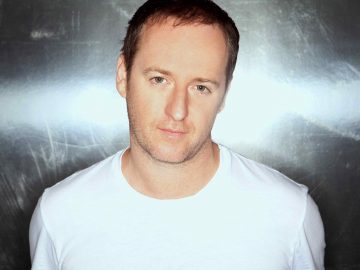
FS: Do you think that’s what we’re seeing today, that the underground is coming out, not so much into the mainstream but its following is growing?
S: It’s very different now. There was a feeling in the early 2000’s that the underground had completely run out of steam. I don’t really feel its like that at all now at all, I just feel that general music tastes are changing. With the underground, the techno and electronic scene is thriving and doing so well all over the world.
Boutique techno parties and festivals are getting huge. Really interesting lineups are being put together at festivals without commercial acts and are doing well. You got parties like Elrow where it really doesn’t seem to matter who’s DJng, it’s rather about the event itself. So it’s a pretty damn health scene right now.
On the commercial end of things, I think people are getting tired of it the same way it happened at the end of the 90’s/early 2000’s that the commercial tastes where changing and people maybe got tired of a certain sound dominating the charts. That seems to be happening right now but those producers are evolving, changing and developing as well.
The great thing, and I’ve always said this about electronic (music), the reason why it sticks around is that it does keep evolving. New sounds or a new hybrid sound will pop out and the scene will just suddenly gain momentum again.
Even a few years before the drum & bass thing happened, no one could have predicted that people would start playing music at that tempo and it would become a huge scene. That just what happens with electronic, all it takes is one huge record to just change the course of things.
FS: I can tell you that the underground scene down here is going through that ‘thriving’ stage now. A lot more international artists coming town and playing at a few venues around town. That boutique techno and house festivals are taking off big time down here.
S: Well that’s really great to hear.
FS: I think you’ll really enjoy coming down and playing at the 10th anniversary for Strawberry Fields.
S: I’ve always enjoyed coming down to Australia and I’ve always enjoyed the crowds down there. I do see in Australia that things do move at a rapid pace down there and things come and go quite quickly and things can change in quite a short period of time. But it seems that right now is a really good time to be coming back so I’m very excited to come and play.
I’ve always loved coming down to Australia anyway. The place is amazing. I love hanging out there, I love eating there (laughs). I got a lot of friends and relative there so it’s always a special trip for me. Seems that right now is a very good time to come back and be playing the type of music that I play.
FS: Have you played in that unique Australian environment before?
S: Yeah I did that crazy festival outside of Melbourne, Rainbow Serpent. I did that once and it was bonkers so I have an idea of what I’ll be getting myself into. (laughs).
FS: Is there anything about the scene today that is keeping you curious to see where it heads next?
S: I mean I always hate to make predictions with the scene because things always surprise me. People come out of nowhere and are suddenly huge DJ’s after a couple of releases like I said before it takes one record to change the course of everything. So it’s hard to make predictions.
FS: You’re more or less just along for the ride with all of us?
S: Yeah it’s just great to be along for the ride and to still keep being booked, to be relevant, to be enjoying it and being apart of it all. I never thought in the early days that I would get to make a lifetime career out of DJing and making music. I was always just apart of the scene in the early days.
FS: You once said you “…always like to have something that you’re building towards” and if you don’t have that, you can get a bit lost along the way. What’s kind of methods do have you developed to stay inspired all this time?
S: Having a big project, whether it’s a new album or a new concept for a mix CD or, right now my main focus is doing these live events which I’ve been really excited about. They’ve been quite successful and well received. Right now we’re writing music for the third round of these shows.
I’m really hoping that in the future I’ll be able to find more of a balance between the live show and my DJ sets. So right now that’s where my energy is focused, writing the music for the live show and how we’re going to play it live.
The first round of those shows was all about taking existing music that had been written for clubs and trying to make it work in a live environment, whereas now we’re writing music specifically for the show. We have a process of elimination where we ask ourselves ‘is this going to work in the show?’.
If it’s not then we’ll put it to one side. If its ‘ahh this could really work in a live environment’ then we’ll push it (the sounds) like that.
It’s kind of a new approach to making music which is really exciting; at this point in my career, to suddenly have a whole new way of music making and whole new direction.
I’m still focused on the kind of sounds and music that I like to make, but whenever I made music I’d always envisage on how it would sound in the club the moment I dropped it, whereas now I’m thinking ‘how is this going to work in a live environment, how is this going to work?’. So it’s a different sort of focus and it’s really exciting because of its opening up a lot of interesting possibilities.
FS: This is you working with an orchestra with this project?
S: We’re working with strings but it’s not really a big orchestra thing. I know a lot of people are doing this big orchestral thing, playing a lot of the classics but that’s not really our focus. We’ve got strings apart of the show but they’re there as a sort of ‘add-on’ to what we’re doing.
The core of the show is the main band which is me, Charlie May, David Gardener and Dennis White (Thermal Bear). We have an orchestral percussion guy, Joby Burgess, whose amazing. A lot of the other musicians and singers will rotate and change for each round of shows.
I can’t take an 80 piece orchestra on the road, I’m not Hanz Zimmer. So the challenge at the moment, how do we evolve that show. It’s a really interesting and exciting process.
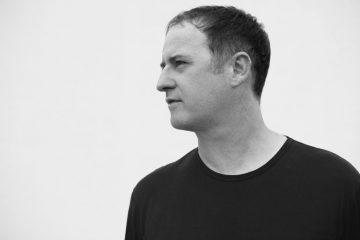
FS: Is the audience you’re aiming to shoot for a ‘sit-down and listen’ crowd or is it more focused on dance?
S: It’s not necessarily a ‘sit-down and listen’ show. I’ve seen people like Nils Frahm play in beautiful concert halls venues and he does that show incredibly well – his show has just blown me away – but then I’ve seen people like Bonobo play an electronic show at Ally Pally (Alexander Palace) to 10,000 people that really works in that environment, so his shows (Bonobo) is really more my inspiration than the orchestral electronic things thats happening a lot.
I’m trying to build something that isn’t just tied to a concert or sit-down venues. We want to do a show that’s possible to put into those venues but at the same time, I’d also like to go to a regular festival and play on a stage as well. So we’re trying to look at how that works at the moment because they’re two different kinds of shows (venues).
The next shows that we’re doing are at the Brixton Academy, Apollo in Manchester and Barrowlands in Glasgow so they’re very much kinds of big venues that host rock concerts. The first show we did was the Barbican in London which is a sit-down venue with amazing acoustics.
It’s a very revered concert space so the show that we built for that won’t necessarily work in Brixton, so we’re trying to work out how we can keep the idea of what we did at the Barbican but make it work on a rock stage. That’s our challenge at the moment.
FS: So the show is sort of this flexable experience…
S: Yeah. On the last bunch of shows we did the Roundhouse which is more like a traditional rock venue, but then we also did the Bridgewater Hall in Manchester which is much more like the Barbican. We did those shows on the same weekend but they were very different experiences.
The things the really work in the more rocking venues are the more rocking tracks. The stuff you play in the sit-down venues, you definitely get people’s attention for the finer details so you can be a little more experimental in those concert venues but in the rock venues, you’ve got to get the atmosphere rampt up and get the crowd rocking.
FS: Is there any plans for that show to come down to Australia?
S: It’s one of my big things at the moment to try and find out a way to try and tour this thing in the states and in Australia. We’ve definitely got offers and plans but we’re trying to figure out how to make the show work so we can tour. It’s quite a big show, there’s 35-40 people involved in the show in London.
It’s hard to tour that and make it work. The logistics of touring that many people and equipment is very hard. But it’s definitely a conversation we’re having and we’re trying to work out, as how you said, how to make it flexible so we can get on planes and tour with it.
FS: Fingers crossed, we’d love to see you.
S: Yeah, I’d love to bring it to Australia. Its one of my key things to do Australia, South America and North America.
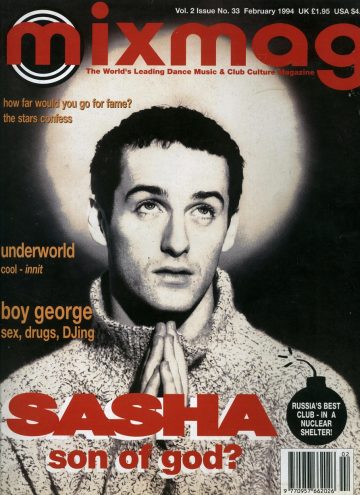
FS: Has there ever been a time or times in your career where you’ve thought of giving it away? What have you told yourself to keep on track?
S: There has definitely been times when the touring has really got to me. When you’re planning a run of shows 6 months in advance, you think ‘oh yeah I can do that’ and then you get into the nitty-gritty of the schedule that you agreed on, you start to think ‘oh god why did I agree to that’ (laughs).
A few years ago when I was promoting one of the Evolver albums, I did in August something like 20 shows in 30 days and by the start of September I was just on my knees, just shattered, thinking ‘woooah what just happened to me!’.
In hindsight, you look at that and think ‘that’s a bit too much Sasha’. But its very hard when you’re agent and management are calling up saying ‘do you want to do this great show and this great show?’ and of course you want to do it and don’t want to say know. You want to make it all work as you might not get offered the gig again. There’s always that pressure on.
There’s something that comes with having good management and knowing yourself and how much you can handle all just comes with the experience of being on the road.
FS: You’ve said that one’s health and sanity is the most important thing to protect. At what stage of your career did this dawn on you? What would be some advice that you’d give to the next generation of producers for dealing with pressure?
S: Well it’s something that i’ve come to realise through experience and seeing some sad cases of people crashing and burning.
FS: What period of your life did that dawn on you?
S: It’s been fairly recent. I’ve been on the road for almost 30 years and it’s only been something in the last few years that’s come to my attention. You kind of have to go through it and experience a little bit of burnout before you realise ‘okay I can’t maintain that’.
FS: In regards to that, what would be some advice that you would give to the younger generation of producers and DJ’s?
S: It would be very hard for me to say ‘don’t overdo it’ (laughs). Because when your star is rising and you’re getting offered everything on the planet, you just want to grab at everything and take it all in, play ever gig and experience it all. It’s very hard for anyone to give advice about taking it easy.
There’s been a couple of cases recently when I’ve thought that the management really should have stepped in and done something about it. Some of the EDM guys schedules that I’ve read about are just inhumane. I mean 300 shows in a year? Come on guys, what are you trying to do your artists?
FS: The artist is sort of just a product that management is organising shows for vicariously.
S: Yeah they’re almost well aware that they’re going to burn the person out and they’re just trying to make as much money out of the artist as possible. Like I said before, the only way to really understand the effect of what touring has on someone is obviously get your fingers burnt a little bit.
All I’ll say is that if you can manage that then you’re going to have a longer career. Having good people around you, management you can trust and solid friends to form a good solid base around you is key. If you’re out there on the road by yourself, it can be a pretty brutal place.
FS: Have you found that your family have been to fall back on and sink into that space when work has got too much?
S: Yeah, I just learn this summer – and this is the first summer that I’ve ever done this in my entire career – but I took time off in the peak of the summer to spend time with my family and I had an absolute brilliant summer. The gigs where brilliant, I had time with the family and I had time to recuperate between shows. But it’s been the first time that I’ve done it in 30 years so it’s taken me a long time to learn that lesson.
When I say time off I mean I took a weekend off in June, July and August. Normally I would work all the way through from the end of May all the way through until October and then collapse in a heap, whereas this summer I took timed breaks all the way through.
It’s taken me 30 year of getting to the end of every October being in an absolute state (laughs) to realize that if I broke the summer up that I might actually feel better. Sometimes it take a lot to teach yourself a lesson.
FS: You’ve always gone down your own path and worked on projects, despite knowing that some fans mightn’t appreciate the direction. Is a certain level of pressure when comes to choosing what ideas to follow?
S: Maybe my career would have turned out differently if, when I released Expanded, I’d done another load of Expander type records because that’s what people wanted at the time. But I always feel that if I make a record of a certain sound that and I’m really happy with it, I’m like ‘okay I’ve done that now, what can I do next thats a challenge, that’s different?
I’ve never really been one of those guys that just likes to churn out the same thing over and over. I might have been a bit more successful if I had done that, commercially wise, but I always feel like ‘that record was a sound and I’m really happy with it but let’s move on’.
It’s okay to revisit stuff! Wherever I’ve gone back to do another involver, its always been a whole new set of music to do another one of those styled albums. I think you really have to love what you’re doing when you’re in the studio. Obviously, you want your core fan base to like what they hear, but at the same time, you want to push yourself forward a bit and challenge yourself.
FS: Your output has been limited to one release in 2018. What was it about ‘Singularity’ in particular that enthused you to release that track in particular?
S: There was a lot of music that we wrote off the back of Scene Delete. After doing that record, which was very tripped out and out there, definitely made for a home listening environment, I really wanted to make a load of club music. Singularity and Smoke Monk where the last of that batch of out-and-out club tracks that we’d made.
Since then we’ve been focused on writing new music for this show. We have something like 50 demos on the go. 2019 is going to see a lot of new music come out. 2018 has been a little bit quite but we’ve been really busy. I’ve got a feeling that off that back working on the music for the live show, there will be another load of music that didn’t fit in there. Got some collaborations coming up as well so a bunch of interesting stuff coming up.
FS: One thing I’m curious about is people’s creative process. Writer’s block and lack of inspiration is one of the core issues that producers encounter. What’s your method of dealing with these issues? Do you know that if your not in the zone do you put your attention elsewhere?
S: I just listen. Whenever I get stuck in the studio I think ‘its time to get inspired’ and just start digging around corners of a website, bandcamp, spotify, around my record collection…The inspiration is all there.
If you’re trying to make a certain record, and its not working, you sort of get tunnel vision. You think ‘I can’t do this because I’m not feeling inspired”. Inspiration is really just a click away.
All of the time when I’m struggling in the studio a bit, I just decide that I won’t touch any equipment for a few days and just listen, and you always find things you like. It might take a while but you’ll always find something that really just hits a note with you. Weather its a synth noise, or a bass sound in a certain record or a groove.
It’s good to just step away from the gadgets and the computer for a bit when you’re struggling.
FS: I know what you mean. There are times when I’m in the studio and I start to get frustrated because I’m not making anything good.
S: Yeah, I think those are times when you think ‘I need to open my ears and give them a clean’.
FS: Is studio time hard for you to come by these days?
S: It is. I wish I had more time in there. I have a little setup and I just love going in that room. Its like my happy place but I’m in there very far and few between.
I have to grab ideas when I can when I’m on the road. A lot of my down time in my life is when I’m travelling, be that in a hotel room or I have a few days off in a city between shows. That’s the time when I can really dig into things, gather ideas together and work on existing tracks.
So I do a lot of work on my crappy laptop speaker or headphones. But, I have to grab the time when I can because my studio days are pretty precious. When I get in there I might have ten ideas that are ready to work on and I’ll try and blitz through what I have in two or three days.
FS: Do that sustain your output for a whole year?
S: Yeah, we’re always working. My studio in London, where my production team of David Gardner and Dennis White are, is always working. As I said, we have something like 50 demos on the go and a mountain of other stuff to get through and get finished. The only way that I can do this is with a team of people. I can physically do everything between touring and my family life. The only way I can get this music together is with a strong team of people which I’m lucky enough to have found these guys to work with. We have a great relationship and understand. We speak the same language.
I might be jet lagged in Tokyo at 3am with a synth line idea. I’ll send it through to them and they process it, work it around. We might take a groove off another track that we’ll work around with. A lot of the time it’s a complicated jigsaw puzzle.
It was my upmost pleasure to get the chance to have a chat with Sasha and I very much look forward to seeing him play. Below is a list of his Australian club shows with ticket links so hop to it!
EMC Sydney: Wednesday, 14 November
Melbourne: Friday 9th November @ Brown Alley
Return to Rio Festival, NSW: 9th-11th November @ Wisemans Ferry
Brisbane: Sunday 11th November @ Capulet Bar
Strawberry Fields Festival: 16th-18th November @ Tocumwal
Sydney: Saturday 17th November @ Return to Rio – The Reveal
Fremantle: Sunday 18th November @ Habitat Garden Party
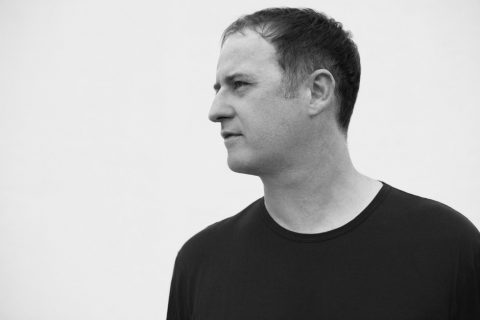
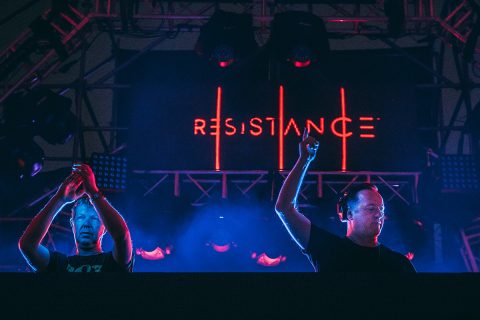
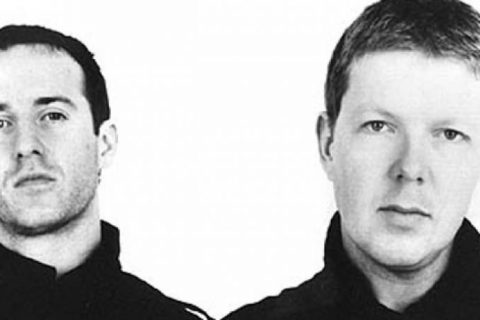

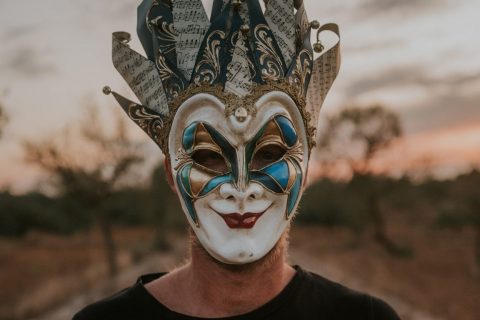
Comments